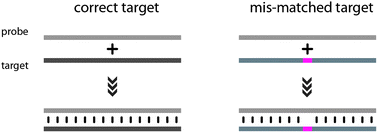Emerging technologies for hybridization based single nucleotide polymorphism detection
Abstract
Detection of single nucleotide polymorphisms (SNPs) is a crucial challenge in the development of a novel generation of diagnostic tools. Accurate detection of SNPs can prove elusive, as the impact of a single variable nucleotide on the properties of a target sequence is limited, even if this sequence consists of only a few nucleotides. New, accurate and facile strategies for the detection of point mutations are therefore absolutely necessary for the increased adoption of point-of-care molecular diagnostics. Currently, PCR and sequencing are mostly applied for diagnosing SNPs. However these methods have serious drawbacks as routine diagnostic tools because of their labour intensity and cost. Several new, more suitable methods can be applied to enable sensitive detection of mutations based on specially designed hybridization probes, mutation recognizing enzymes and thermal denaturation. Here, an overview is presented of the most recent advances in the field of fast and sensitive SNP detection assays with strong potential for integration in point-of-care tests.


 Please wait while we load your content...
Please wait while we load your content...